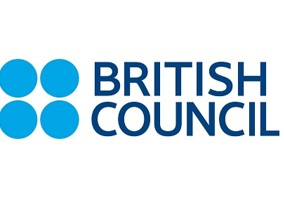The former chief executive and chair of Yateley Industries for the Disabled charity, had admitted to defrauding the charity’s pension scheme out of more than £250,000.
At Salisbury Crown Court, Patrick McLarry, 71, pleaded guilty to fraud. He admitted to taking funds from the pension scheme of the charity and using it to buy homes in France and Hampshire for himself and his wife, as well as paying off a personal debt.
The Pensions Regulator (TPR), which brought the prosecution, has said it will now seek a confiscation order to “force” McLarry to hand back all of the money he took from the pension scheme.
At the time of committing the fraud, McLarry was both the chief executive and chairman of the charity, Yateley Industries for the Disabled, and a director of VerdePlanet Limited, the corporate trustee of the charity’s pension scheme.
The TPR investigation found that prior to VerdePlanet being appointed as the trustee of the scheme, the corporate trustee “took the unusual step” of amending the scheme’s definitive deed which meant the scheme was unable to pursue McLarry for the funds which he went on to take.
‘The only outcome is a substantial prison sentence’
In court, Judge Andrew Barnett told McLarry: “It is a serious matter and the only outcome is a substantial prison sentence.”
Sentencing will take place at Salisbury Crown Court on 13 December.
Between March 2012 and February 2013, McLarry arranged for £256,127 to be transferred from the charity's pension scheme into bank accounts he controlled.
McLarry forged documents which attempted to mislead TPR investigators about who owned the properties involved.
‘McLarry posed as a pillar of the community while he was secretly working to steal for himself’
Nicola Parish, TPR’s executive director of frontline regulation, said: “McLarry posed as a pillar of the community while he was secretly working to steal for himself the pension savings of dozens of disabled workers.
“He lied repeatedly to try to muddy the waters around him but our investigators cut through his attempts at deception to uncover the truth.This prosecution shows that we will do everything in our power to take action against those criminals who raid pension pots for their own gain.
“We will now work to recover the funds McLarry took.”
£2m pension deficit
The charity declined to comment on court proceedings, but its accounts for the year to 31 March 2019, filed with Companies House, reveal a pension deficit of £2m.
In the foreword, Roy O'Shaughnessy, chair, said: "Continued focus this past year has been on working with the Charity Commission, the Pension Regulator, the Pension Administrator and the charity's bank, Reliance, to agree a way to meet the historical pension deficit that currently stands at approximately £2m.
“The future sustainability of the organisation depends on a plan being agreed on how this deficit can be credibly bridged.
“This plan must be agreed by the key stakeholders noted above and we will be required to work closely with these organisations to ensure the current viability of operations and the future of the charity.
“Essentially what this means is that we must be able to show that we can contribute £80,000 a year to the pension fund from our regular budget and on top of that we need to raise an additional £100,000 a year from extraordinary giving over the next ten years to go directly towards the pension shortfall.
“This is an exceptional challenge, which is exacerbated by the historical mismanagement by previous trustees and executive management uncovered by the current trustees when they were appointed.”
The charity's total income was £1.6m, but income from donations and legacies was £74,000 with the majority of its funding coming from local authority contracts.
Charity Commission: 'Abuse of power for personal gain has no place in charity'
The Charity Commission said: “We welcome the court’s decision to convict the former CEO of Yateley Industries for the Disabled Limited. The abuse of power for personal gain has no place in charity, and it is right that those who do so are held to account for their actions. We have worked closely with the Pensions Regulator to support their investigation and have engaged with the trustees’ over this incident.”
“When a charity falls victim to fraud, more is lost than money. Fraud can have a hugely detrimental impact on morale in a charity, and on public trust, which is why we are working with charities to improve the sector’s defences against fraud.”
|
Related articles











